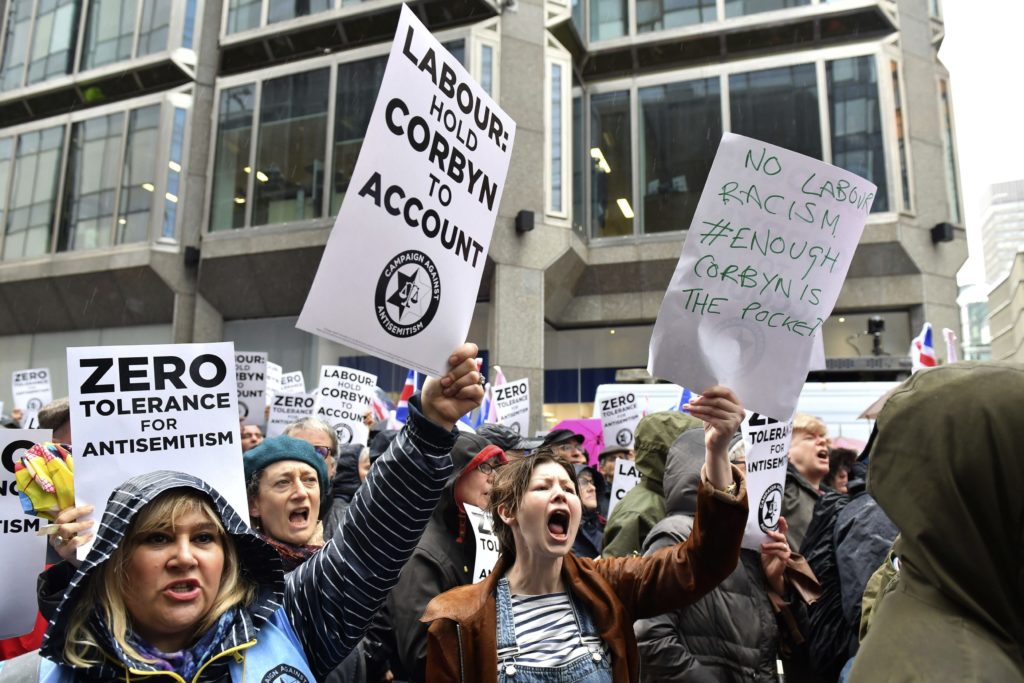A report released by Israeli researchers says violent attacks on Jews dropped in 2017, despite a rise in other forms of anti-Semitism.
By: AP
Violent attacks on Jews worldwide dropped in 2017 despite a rise in other forms of anti-Semitism, researchers reported Wednesday, in a year characterized by normalization and mainstreaming of anti-Semitism not seen in Europe since World War II.
Researchers at Tel Aviv University said assaults specifically targeting Jews fell 9 percent last year. They recorded 327 cases compared to 361 in 2016, which had already been the lowest number in a decade.
But they noted attacks were far more brazen. Most dramatic were a pair of cases in France, where a Jewish woman was thrown to her death out of her apartment window and a Holocaust survivor was stabbed and burned to death in her Paris home.
Threats, harassment and insults have also driven thousands of French Jews to relocate.
“Neither the public nor the private space is perceived as safe for Jews,” said Moshe Kantor, president of the European Jewish Congress, an umbrella group representing Jewish communities across the continent. “The general feeling shared by Jews, as individuals and as a community, is that anti-Semitism has entered a new phase, and is widespread in most parts of the world.”
Tel Aviv University’s Kantor Center for the Study of Contemporary European Jewry releases the report every year on the eve of Israel’s Holocaust memorial day, which begins Wednesday at sundown.
Increased security measures are credited with reducing violence, but it may be masking a trend of anti-Semitism becoming more mainstream and acceptable, particularly in European politics. The report described a toxic triangle made up of the rise of the extreme right, radical Islamism and a heated anti-Zionist discourse on the left accompanied by anti-Semitic expressions.
“The religious dimension of classic, traditional anti-Semitism has returned, and the term ‘Jew’ has become an insult,” Kantor said.
He noted that the majority of anti-Semitic incidents still went unreported, either out of fear of retribution or a lack of interest on the part of local authorities.
Despite the overall drop, anti-Semitism rose in many places globally. In Germany, home to the world’s fastest growing Jewish community, there was a rise in anti-Semitic acts from 644 in 2016 to 707 in 2017. Among these were 24 violent cases in 2017, compared to 15 the year before.
Kantor also said that the ascendancy of British Labour Party leader Jeremy Corbyn led him to believe that “the banality and normalization of Jew-hatred has reached the highest levels.”
Critics say Corbyn, a longtime critic of Israel, has long allowed anti-Jewish prejudice to go unchecked. Corbyn’s supporters have been accused of sharing Holocaust denial and international Jewish banking conspiracies on social media. On Tuesday, Israel’s Labor Party suspended its ties with Corbyn over his party’s expressions of anti-Semitism.
The year was also marked by the deadly white supremacist rally in Charlottesville, Virginia — where demonstrators used the Heil Hitler salute, donned swastikas and chanted slogans such as “Jews will not replace us.” Far-right parties gained strength following elections in Germany and Austria. U.S. President Donald Trump’s December recognition of Jerusalem as the capital of Israel also set off demonstrations that were used as a pretext to attack Jews with anti-Semitic slogans, including calls for murder.
The report cited an audit of the Anti-Defamation League that found anti-Semitic incidents in the United States rose 57 percent in 2017 — the largest single-year increase on record and the second highest number reported since the ADL started tracking such data in 1979. The sharp rise was due in part to a significant increase in incidents in schools and on college campuses, which nearly doubled for the second year in a row.


